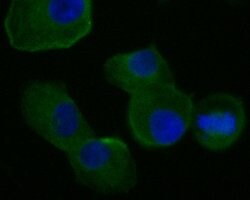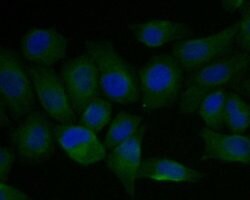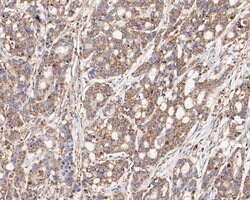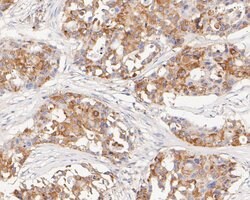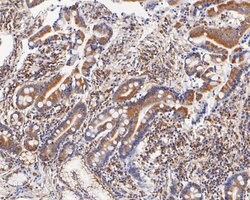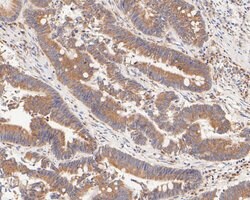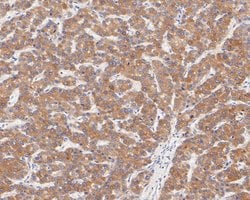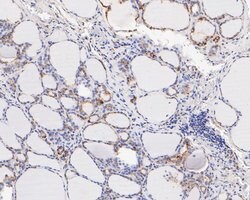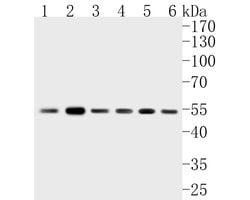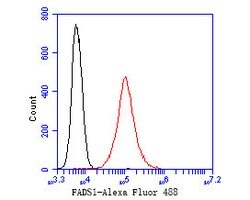Learn More
Invitrogen™ FADS1 Recombinant Rabbit Monoclonal Antibody (JE55-63)
Rabbit Recombinant Monoclonal Antibody
Supplier: Invitrogen™ MA542500
Description
Positive Control: Rat liver tissue lysate, mouse liver tissue lysate, mouse brain tissue lysate, rat lung tissue lysate, Hela cell lysate, A549 cell lysate, Hela, PANC-1, human liver carcinoma tissue, human thyroid tissue, human colon carcinoma tissue, human breast carcinoma tissue, human stomach carcinoma tissue, human small intestine tissue, A549. Subcellular Location: Mitochondrion, Endoplasmic reticulum membrane.
The protein encoded by this gene is a member of the fatty acid desaturase gene family. Desaturase enzymes regulate unsaturation of fatty acids through the introduction of double bonds between defined carbons of the fatty acyl chain. FADS family members are considered fusion products composed of an N-terminal cytochrome b5-like domain and a C-terminal multiple membrane-spanning desaturase portion, both of which are characterized by conserved histidine motifs. This gene is clustered with family members FADS1 and FADS2 at 11q12-q13. 1; this cluster is thought to have arisen evolutionarily from gene duplication based on its similar exon/intron organization.
Specifications
| FADS1 | |
| Recombinant Monoclonal | |
| 1 mg/mL | |
| TBS with 0.05% BSA, 40% glycerol and 0.05% sodium azide; pH 7.4 | |
| O60427, Q920L1, Q920R3 | |
| FADS1 | |
| Synthetic peptide within N-terminal Human FADS1. | |
| 100 μL | |
| Primary | |
| Human, Mouse, Rat | |
| Antibody | |
| IgG |
| Flow Cytometry, Immunohistochemistry (Paraffin), Western Blot, Immunocytochemistry | |
| JE55-63 | |
| Unconjugated | |
| FADS1 | |
| 0710001O03Rik; A930006B21Rik; Acyl-CoA (8-3)-desaturase; AI317215; BC269730_2; D5D; delta(5) desaturase; delta(5) fatty acid desaturase; delta-5 desaturase; delta-5 fatty acid desaturase; DSD; FADS1; FADS6; FADSD5; Fatty acid desaturase 1; FLJ38956; FLJ90273; linoleoyl-CoA desaturase (delta-6-desaturase)-like 1; LLCDL1; TU12 | |
| Rabbit | |
| Protein A | |
| RUO | |
| 3992, 76267, 84575 | |
| Store at 4°C short term. For long term storage, store at -20°C, avoiding freeze/thaw cycles. | |
| Liquid |
Safety and Handling
Your input is important to us. Please complete this form to provide feedback related to the content on this product.
